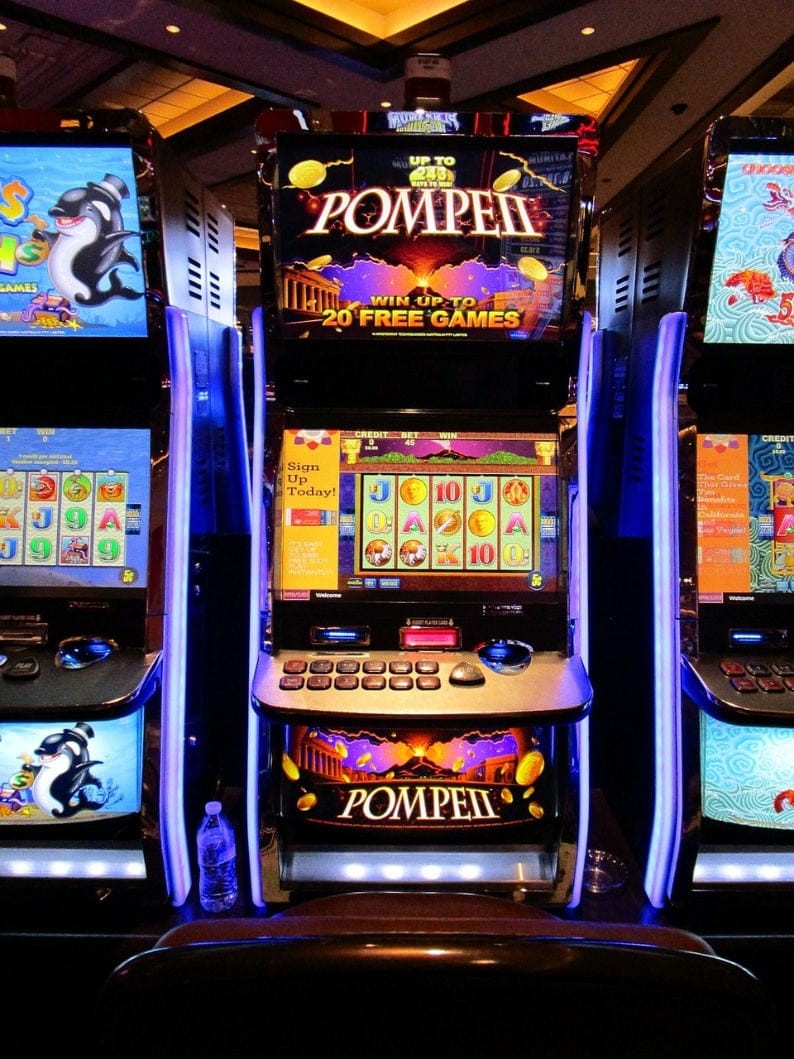
Michigan Sportsbooks vs. Vegas: A Casino Industry Analysis You Can’t Miss
The casino industry is evolving rapidly, with states like Michigan stepping into the spotlight. Michigan sportsbooks have gained significant traction, offering a fresh alternative to the traditional Vegas experience. As the landscape shifts, it’s essential to examine how these platforms measure up against the iconic standards set by Las Vegas.
In this analysis, readers will explore the unique features of Michigan's sports betting scene, from user experience to regulatory frameworks. By comparing these elements to established Vegas norms, one can uncover what makes Michigan a compelling player in the gaming market. Understanding these dynamics not only highlights the growth of sports betting but also sheds light on the future of the casino industry as a whole.
Casino Industry Overview
The casino industry has undergone significant transformations in recent years, driven by technological advancements and shifting consumer preferences. Traditional establishments have had to adapt to new competition from digital platforms, which have surged in popularity. Online sports betting and mobile gaming have changed how enthusiasts engage with their favorite activities, making convenience a key factor in player choice.
Legislation plays a crucial role in shaping the gaming landscape. Various states have legalized sports betting, resulting in an influx of new operators and a wider selection of betting options. Regulatory frameworks ensure that participant interests remain protected while allowing for market expansion. As jurisdictions implement guidelines, operators must comply with standards that govern everything from payout percentages to responsible gaming practices.
Consumer experience has become a focal point for operators aiming to differentiate themselves in a crowded market. The integration of user-friendly interfaces and innovative technology enhances the overall experience, attracting a diverse demographic. Additionally, personalized promotions and loyalty programs offer incentives that keep players engaged. Establishments increasingly rely on data analytics to tailor offerings and track consumer behavior, which allows for targeted marketing strategies.
Compared to established markets, emerging ones exhibit unique characteristics. The rise of localized gaming has prompted a blend of traditional casino elements with modern features, creating a distinct environment for players. Local culture often influences game selection and promotional strategies, emphasizing regional preferences that differ from those found in Las Vegas.
As the landscape continues to evolve, the competitive dynamics between traditional establishments and new market entrants will shape future trends. Stakeholders in the industry must navigate these changes to capitalize on the growing demand for diverse gaming experiences tailored to modern audiences.
Michigan Sportsbook Landscape
Michigan's sports betting market has expanded rapidly since its launch. With multiple platforms available, users experience diverse betting options, increased competition, and improved services. The state’s regulatory environment promotes safe gambling while fostering innovation tailored to modern preferences. For those interested in exploring new betting platforms, Michigan offers exciting opportunities for bettors looking to make the most of the state's evolving sports betting landscape.
Growth of Sports Betting in Michigan
The legalization of sports betting in Michigan marked a turning point for the state's gaming industry. Within months, revenue figures exceeded expectations, reflecting a strong appetite among residents. Increased marketing efforts and strategic partnerships have played a vital role in attracting new customers. The integration of mobile platforms further enhanced accessibility, allowing users to participate easily from anywhere within state lines. The trend signals a bright future for this segment, as stakeholders capitalize on technology and evolving consumer appetites for real-time engagement.
Key Players in the Market
A mix of local and national entities dominate Michigan's sports betting scene. Established companies leverage their experience and brand recognition to capture significant market shares, while new entrants focus on innovative strategies and unique offerings. Collaborations between sportsbooks and professional sports teams have strengthened market presence, creating engaged fan bases. These partnerships not only enhance brand visibility but also foster loyalty through tailored promotions and incentives. The landscape remains competitive as operators continually adapt to capitalize on emerging opportunities and meet consumer demands.
Comparison to Traditional Vegas Standards
The difference between Michigan's sportsbook environment and traditional gaming centers lies in game variety and customer experience aspects.
Game Variety and Types Offered
Michigan's sports betting landscape boasts a broad range of options beyond just sports wagering. Users access live betting opportunities, in-game wagering options, and novelty bets, which appeal to various interests. Traditional gaming venues typically emphasize classic table games and slot machines, while emerging markets prioritize flexibility. This shift correlates with demographic insights, where younger audiences favor interactive and diverse gaming formats. As a result, enthusiasts often find unique offerings such as fantasy sports and esports betting, which cater to evolving preferences and enhance overall engagement. Localized tastes further influence available games, allowing operators to tailor experiences that resonate with specific audiences.
Customer Experience and Service
Customer service plays a critical role in shaping user perceptions. Michigan's sportsbooks recognize this and invest in technology and responsiveness to improve interactions. Features like live chat support, extensive FAQs, and user-friendly interfaces attract and retain users. This approach contrasts with traditional venues, where the customer experience may feel less personalized. Innovations such as app integrations and social features allow for seamless navigation and promote community engagement. Additionally, promotions and loyalty rewards are strategically designed to enhance user satisfaction and incentivize repeat participation. As companies adapt to higher expectations, they foster an atmosphere that prioritizes customer connections, vital in today's competitive market.
Revenue and Economic Impact
The recent expansion of sports betting in Michigan has significantly influenced the local economy, creating jobs and stimulating growth. Establishments have adapted to new regulations, drawing in both tourists and residents. By capitalizing on in-state spending, operators enhance local businesses and boost overall employment. The sports betting sector has enabled various ancillary services to flourish, from hospitality to retail.
Contributions to State Economy
Local economies have benefited from the influx of gambling revenue, which supports public services and infrastructure projects. Job creation is notable, as establishments employ thousands across the state, helping to lower unemployment rates. Visitor spending in areas surrounding betting venues contributes to the economic revival of communities, with increased patronage at hotels, restaurants, and entertainment venues. Revenue reallocation towards education and social services showcases the broader societal benefits derived from this burgeoning industry.
Tax Revenue Comparisons
Tax revenue from regulated sports betting operations is a significant factor in evaluating economic contributions. Michigan's tax structure effectively captures a portion of gross gaming revenue, benefiting state initiatives. Comparing this revenue to traditional gaming markets demonstrates a robust performance since legalization. Many states with similar operations have reported impressive tax figures, indicating a growing trend where regulated environments yield substantial financial returns. Increased transparency and regulatory oversight lead to better allocation and utilization of tax funds, enhancing community welfare.
Conclusion
Michigan's sportsbook market is rapidly establishing itself as a formidable player in the casino industry. Its innovative approach to user experience and strategic partnerships with local sports teams significantly enhances its appeal. The state's commitment to leveraging technology and personalized services positions it well against traditional Vegas standards.
As the landscape continues to shift due to evolving consumer preferences and regulatory changes, Michigan's sportsbooks are poised to capture an even larger share of the gaming market. The economic benefits and community support generated by this growth further underscore its importance. With ongoing advancements and a focus on customer engagement, Michigan is set to redefine the future of sports betting and gaming overall.
Related Article Archives
Related Articles
Sweepstakes Casinos: Why Players Are Choosing Social Gaming in 2026
Posted Feb 18th, 2026
Thrill Seekers vs. Strategists: Which Casino Games Match Your Personality
Posted Feb 18th, 2026
The Top 5 Slot Games Players Keep Coming Back to in 2026
Posted Feb 20th, 2026
How Canadian Fans Are Pairing Game Night With Digital Casino Entertainment
Posted Feb 25th, 2026
No-Wagering Casino Bonuses in Canada: A Clearer Look at Simpler Bonus Terms
Posted Feb 25th, 2026
Winna Casino Review What Players Should Know Before Signing Up
Posted Feb 17th, 2026
Disclosure: This article contains sponsored content.






